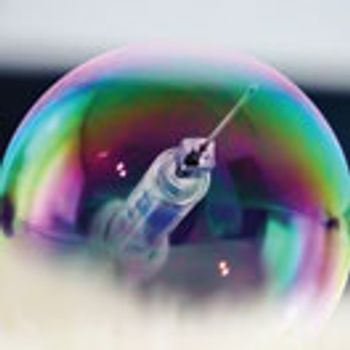
Will AbbVie stave off biosimilar competitors by following Teva’s model for Copaxone?
Randi Hernandez was science editor at BioPharm International from September 2014 to May 2017.

Will AbbVie stave off biosimilar competitors by following Teva’s model for Copaxone?

FDA approved the drug for a more narrow indication in the US than did EMA for Repatha, Praluent’s fiercest competitor.

Teva announced that it has signed a definitive agreement to acquire the generic-drug business of Allergan in a transaction valued at $40.5 billion. The deal is expected to close in the first quarter of 2016.

The PD-1 inhibitor was approved as a first-line therapy and for previously treated patients with advanced melanoma.

The technology platform measures protein-protein interactions.

Amgen says the approval makes Repatha the first PCSK9 inhibitor to be approved in the world.

A Federal circuit appeals court ruled that a biosimilar manufacturer will have to wait 6 months after FDA approval to commercially launch its medication.

The bill would authorize spending of approximately $8.1 billion on transit projects through 2015 while legislators plan a long-term bill that could have implications for the pharmaceutical industry.

The acquisition will bolster Celgene’s immunotherapy pipeline.

A report released by PhRMA in conjunction with the Epilepsy Foundation reveals that the pipeline is dominated by biologics.

The United States Treasury Department introduced policy in September 2014 to discourage companies from merging with foreign companies in another fiscal jurisdiction to escape tax responsibilities. The policy was enacted to make inversion more difficult and to curb a company’s acquisition of a related foreign company for the sole purpose of avoiding United States corporate tax rates.

The offer, valued at $3 billion, represents a 42% increase in Depomed’s share price.

The amendment suggests modifications to the calculation of a drug's average manufacturing price and to the reimbursement rate for infused medications.


The partnership will focus on the development of CAR T-cell therapies and other programs related to T-cell technology.

The GPhA-run organization asks regulatory agencies to keep international nonproprietary naming conventions intact for biosimilars.

The 12th Annual Report and Survey of Biomanufacturing is now available.

The decision makes Australia the first and only nation to permit automatic substitution of biosimilars.

A new framework featured in the Journal of Clinical Oncology will help physicians compare clinical trial results-and costs-of popular cancer medications.

Monoclonal antibodies can facilitate the entry of radiopharmaceuticals into cells, David Scheinberg said at BIO 2015.

The ruling will facilitate the market entry of generic versions of Copaxone, a widely prescribed drug to treat multiple sclerosis.


An advisory panel deemed Amgen’s Repatha (evolocumab) to be safe overall.

An FDA advisory panel voted 13-3 in favor of approval of Sanofi and Regeneron Pharmaceuticals' cholesterol-homeostasis therapy Praluent (alirocumab).

In a Citizen Petition to FDA, AbbVie calls the current biosimilar labeling practices “legally unsound.”

Michiel E. Ultee of Ulteemit BioConsulting discusses converting an early drug discovery into a product that is ready for clinical testing.

Will biosimilars share a compendial identity like generic drugs do?

Prescription drug usage data on more than one million Marketplace enrollees suggest that costs for specialty drugs are 36% higher for people with Obamacare.

The House Energy and Commerce Committee gave unanimous approval to the landmark 21st Century Cures Act reform bill on May 21, 2015.

Physician confidence in biosimilars and extrapolation of indications are two of the most important factors governing the acceptance and sustainability of biosimilars, say industry panelists.